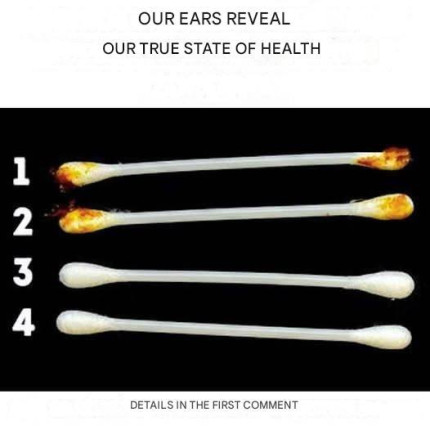Our Ears Reveal the True State of Our Health: What Yours Might Be Telling You
When we think about health, we often focus on what we see in the mirror — skin, eyes, weight — or what we feel in our bodies. But one often overlooked indicator of our overall health is actually right there on the sides of our heads: our ears.
Believe it or not, subtle signs in your ears can provide clues about your internal health, nutrition, and even potential medical conditions. Paying attention to these signals can help you catch issues early and take better care of yourself.
👂 Why Ears?
Our ears are more than just organs for hearing and balance. They’re connected to blood vessels, nerves, and tissues that reflect broader bodily health. Traditional medicine, including practices like reflexology and Ayurveda, has long recognized ears as mirrors of the body’s well-being.
Modern medicine agrees: changes in your ears — whether in shape, color, texture, or discomfort — can hint at what’s happening beneath the surface.
🩺 Common Ear Signs and What They Mean
Pale or blue-tinged ears: May indicate poor circulation or anemia. If your ears feel cold and look pale or bluish, it could mean your blood flow isn’t optimal.
Swollen or red ears: Often linked to infections, inflammation, or even high blood pressure. Sometimes, redness in the ears can signal an immune response or skin conditions like eczema.
Ear creases (Diagonal Earlobe Crease): Some studies suggest a diagonal crease on the earlobe might be associated with an increased risk of cardiovascular disease. While not a definitive diagnosis, it’s a sign to pay attention to heart health.
Dry, flaky skin: Could be a sign of dehydration, nutritional deficiencies, or skin conditions such as psoriasis.
Ringing or buzzing (Tinnitus): Persistent ear ringing can reflect hearing issues, stress, or underlying neurological problems.
🌿 What Your Ears Can Tell You About Lifestyle
Your ears can also reflect habits and lifestyle factors:
Excessive earwax: Can indicate the body’s natural response to irritation but also may hint at stress or environmental factors.
Piercings and infections: Improper care can lead to infections, showing how lifestyle choices impact ear health.
Cold ears: Sometimes linked to thyroid issues or poor circulation caused by smoking or sedentary lifestyle.
👂 How to Take Care of Your Ears for Better Health
Regular checks: Pay attention to any changes in color, texture, or pain in your ears.
Protect from extreme temperatures: Ears are sensitive — wear hats in cold weather and avoid prolonged sun exposure.
